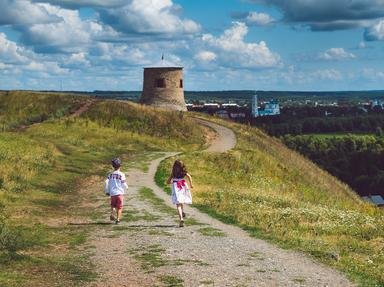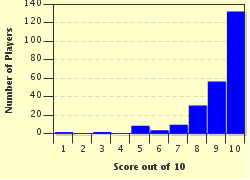Quiz Answer Key and Fun Facts
1. Who was the king who not only united Greece but also conquered the archenemy Persia?
2. Archimedes was one of the most prominent scientists in Ancient Greece. Legend has it that he once leaped out of his bath, stark naked, and yelled "Eureka" (which means "I found it"). What did he find?
3. There were several oracles in ancient Greece: places where someone (usually a priest or priestess) gave advice, allegedly by divine inspiration. Where in Greece would you find the most important oracle?
4. Which Greek writer is considered "the father of history" but also "the father of lies"?
5. A modern sports event was named after the battle against the Persians in 490 BC. What is the name of the battlefield and of the running event?
6. Which of the following musical instruments was *NOT* known to the ancient Greeks?
7. From about 500 BC, the Persian kings sought territorial expansion to the west, so they came into conflict with the Greeks. At which naval battle near Athens were the Persians utterly defeated in 480 BC?
8. One of the greatest Greek philosophers never wrote something down. The only written explanations of his philosophy were annotated by his disciple Plato. Who was this philosopher, who insisted on asking questions?
9. The ancient Greeks loved theatre. They even organised theatre competitions. Who was the playwright who left us plays such as "Antigone" and "Oedipus the King"?
10. Which of the Greek city states was known as having the best trained heavy infantry?
Source: Author
JanIQ
This quiz was reviewed by FunTrivia editor
NatalieW before going online.
Any errors found in FunTrivia content are routinely corrected through our feedback system.


